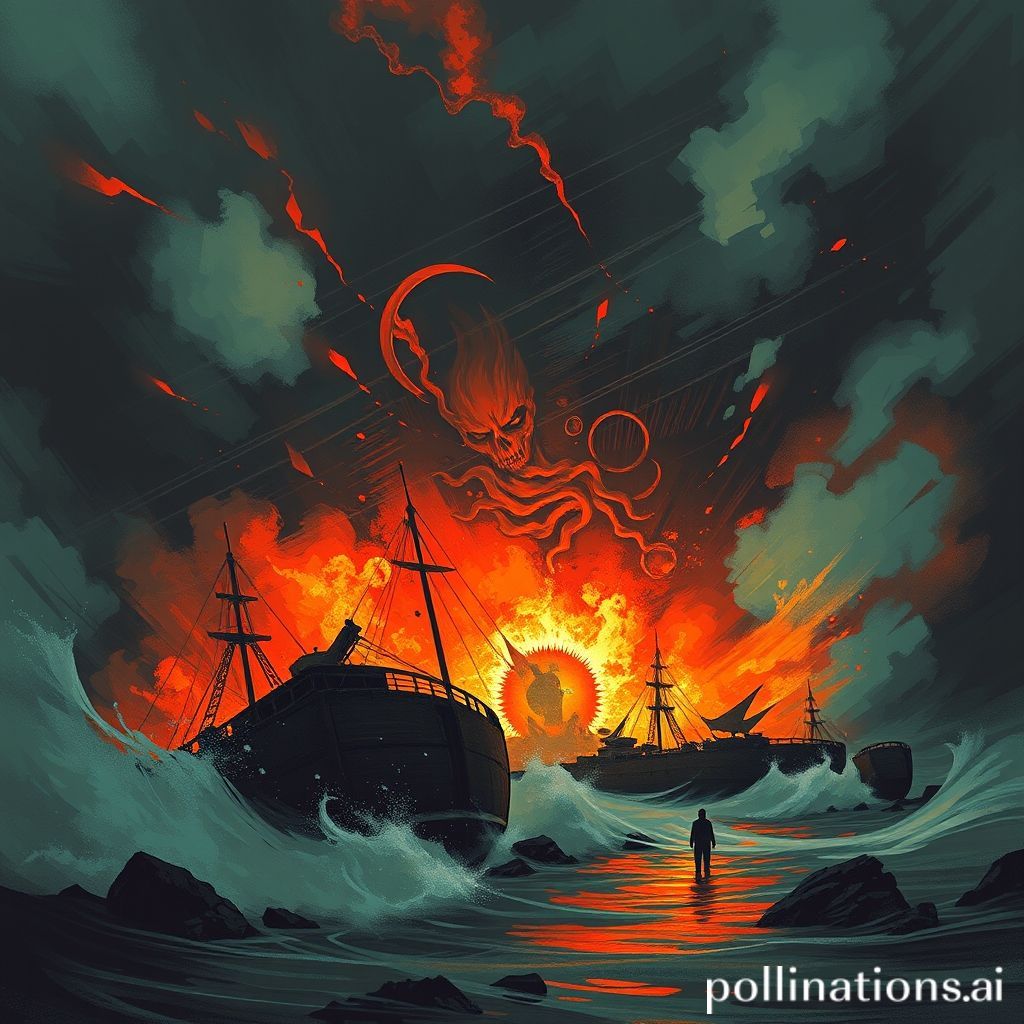Dangerous times

## Navigating Dangerous Times: Understanding the Challenges and Finding Hope
Hey everyone, it feels like we're living in particularly turbulent times, doesn't it? From global pandemics to political polarization and economic uncertainty, it's easy to feel overwhelmed and even a little afraid. But understanding the challenges we face is the first step towards navigating them with resilience and hope. Let's dive into some of the key factors contributing to this sense of "dangerous times" and explore strategies for coping and even thriving.
### The Interconnected Web of Global Challenges
One of the defining features of our current era is the interconnectedness of global issues. What happens on one side of the world can rapidly impact lives on the other.
Pandemics & Public Health: The COVID-19 pandemic starkly illustrated this interconnectedness. A virus originating in one region spread globally, disrupting economies, healthcare systems, and social structures. We've learned the crucial importance of global cooperation and preparedness in addressing public health emergencies.
Climate Change: The effects of climate change are becoming increasingly visible, from extreme weather events to rising sea levels. These changes exacerbate existing inequalities and displacement, creating instability and conflict.
Geopolitical Instability: Rising tensions between nations, armed conflicts, and the spread of misinformation contribute to a climate of uncertainty and fear. The invasion of Ukraine, for example, has had ripple effects on global energy markets, food security, and international relations.
### The Rise of Misinformation and Polarization
Another significant challenge is the proliferation of misinformation and the increasing polarization of societies. Social media algorithms can create echo chambers, reinforcing existing beliefs and making it harder to engage in constructive dialogue with those who hold different viewpoints.
The Impact of Echo Chambers: When we primarily consume information that confirms our existing beliefs, we become less open to new perspectives and more susceptible to misinformation. This can lead to increased polarization and a breakdown in social cohesion.
Combating Misinformation: Critical thinking skills, media literacy, and a willingness to engage with diverse viewpoints are essential tools for navigating the complex information landscape. Fact-checking websites and reputable news sources can help us distinguish between credible information and misinformation.
### Economic Uncertainty and Inequality
Economic inequality has been on the rise in many countries, creating social unrest and instability. Economic uncertainty, fueled by inflation, supply chain disruptions, and technological change, adds to the sense of insecurity and vulnerability.
The Widening Gap: The gap between the rich and the poor continues to widen, leading to resentment and social division. This inequality can manifest in limited access to healthcare, education, and economic opportunities for marginalized communities.
Building Economic Resilience: Investing in education, job training, and social safety nets can help build economic resilience and create a more equitable society. Supporting local businesses and promoting sustainable economic practices can also contribute to long-term stability.
### A Comparative Glance: Different Eras, Different Dangers
It's worth noting that throughout history, humanity has faced periods of significant challenges and uncertainty. Comparing our current situation to past eras can provide valuable perspective.
| Era | Major Challenges | Key Responses |
||||
| World War II | Global conflict, genocide, economic depression | International cooperation, technological innovation |
| Cold War | Nuclear threat, ideological conflict, proxy wars | Deterrence strategies, diplomacy, arms control |
| Today | Pandemics, climate change, misinformation, polarization | Global cooperation, technological solutions, education |
### Finding Hope and Building Resilience
Despite the challenges, there is reason for optimism. Technological advancements offer unprecedented opportunities for solving problems and connecting people. Increased awareness of social and environmental issues is driving positive change.
The Power of Collective Action: By working together, we can address the challenges we face and create a more just and sustainable world. Supporting organizations that are working on solutions to global problems, engaging in civic participation, and making conscious consumer choices are all ways to contribute to positive change.
Cultivating Personal Resilience: Taking care of our mental and physical health, building strong social connections, and practicing mindfulness can help us cope with stress and navigate uncertainty. Focusing on what we can control and finding purpose in our lives can empower us to face challenges with courage and resilience.
### A Personal Reflection
I won't lie; sometimes I feel overwhelmed by the sheer scale of the problems we face. But I also find inspiration in the countless individuals and organizations that are working tirelessly to make a difference. Ultimately, I believe that our ability to adapt, innovate, and cooperate will determine our collective future. Let's face these "dangerous times" not with fear, but with a commitment to building a better world for ourselves and for future generations.
Sources:
World Health Organization (WHO)
Intergovernmental Panel on Climate Change (IPCC)
United Nations (UN)
Pew Research Center
Brookings Institution

0 Comments:
Post a Comment